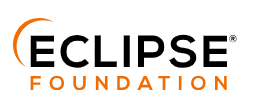This month, Fudan University’s MOSS, a ChatGPT-like AI bot, will become open source in an effort to establish a “China Path” for the use of creative AI tools.
According to Qiu Xipeng, the director of MOSS’s developers and a researcher at the School of Computer Science at Fudan University, organisations and programmers can access MOSS’s codes on Github for free starting in the middle of April.
With significant backers like Microsoft, ChatGPT and its creator OpenAI have access to extensive financial and data resources. The Bing search engine, office software, and cloud have all rapidly embraced AI bots. Chinese developers, including the tech giant Baidu, have scarce means in comparison. The majority of data are separate and not shared, which has caused businesses to perform a lot of redundant work.
Compared to ChatGPT, MOSS has fewer parameters and interactive statistics. However, when it has access to external knowledge bases or learns to look for or use tools in particular areas, its capabilities will be improved, according to experts.
On February 20, just after the pilot test for MOSS went live, the website was inundated with fervent visitors. AI programmes like Ernie Bot have also been created in China by companies like Baidu. However, a large number of users are still on the waiting list to use the Baidu services since its launch in March due to their restricted computing power. According to Qiu, MOSS will be “in line” with moral principles.
Qiu said the open source may be a “China path” for AIGC development. “We hope to promote this ecology with open source (generative language) model to avoid duplicated works,” Qiu told a Beyond ChatGPT Forum organized by the School of Management, Fudan University. “On the model, you can focus on respective segment development, such as e-commerce, education and medication.”




